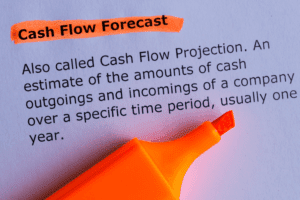Cloud Accounting: What Is It, How It Works, And Its Benefits

Each ERP module supports specific business processes – like finance, procurement, or manufacturing – and provides employees in that department with the transactions and insight they need do their jobs. Every module connects to the ERP system, which delivers a single source of truth and accurate, shared data across departments. For example, marketers can use CRM tools to manage campaigns and lead customer journeys with a data-driven approach. CRM software provides visibility into every opportunity or lead, showing you a clear path from inquiries to sales.
Six key benefits of ERP
If you generate (or expect to generate) a lot of invoices to send to clients, we recommend that you find a comprehensive accounting application with invoice-generating features. Freelancers should consider using accounting software that can generate invoices. According to data from The Brainy Insights the global accounting software market is projected to reach $37.63 billion by 2032. This figure reflects a compound annual growth rate of 10.5 percent across the decade. The following trends are likely to be part of that growth, shaping accounting software as it evolves to meet growing businesses’ needs. Xero’s project-based billing tools are ideal for businesses that need to track materials and labor costs, ensuring each project stays on track and profitable.

Cloud Accounting Software: Why You Should Use Cloud Accounting ?
- You don’t have to wait for your clients to send you receipts and invoices.
- He is known for his pragmatic approach to fiscal policy and governance.
- Organizations can easily add users or modules as the organization grows and evolves.
- One of its drawbacks is that it doesn’t allow you to set up and manage multiple companies under a single account.
- The data stored in the traditional accounting software is not up to date unless one manually updates the latest invoices, expenses, incomes, etc.
- As such, you really shouldn’t keep sensitive files stored online—whether it’s nude pictures or company secrets, keep that stuff on your hard drive.
Our partners cannot pay us to guarantee favorable reviews of their products or services. We believe everyone should be able to make financial decisions with confidence. The reasons for using this highly accessible accounting technology can be unique for every company or accountant. This is vital when you’re looking to make big financial and strategic decisions and want access to the most up to date and relevant data. Cloud accounting is the practice of using an accounting system that’s accessed through the internet. This means that it can be accessed from anywhere which is perfect for remote workers or if a worker is on the road.
- The cloud-based accounting service is one of the most widely used accounting products in the United States.
- Because of this, more and more accounting firms have had to familiarize themselves with cloud platforms.
- You can use it to free up space on your own computer or use it as backup, all while being able to access files from anywhere.
- With Zoho, users can send customized invoices, connect to payment gateways, track expenses, create a variety of business reports and calculate taxes.
- Cloud accounting includes using software, infrastructure, and platforms made for managing money better.
- The foundational accounting features that most small businesses need, such as income and expense tracking, financial reporting, invoicing, and scanning receipts, are all included with this free software.
The Best Business Accounting Software Services of 2024
Employees can then access the programs they need through a browser or portal. While accountants still do all their work on the devices they’re accustomed to using, their data is stored securely in the cloud. This means they can access it anywhere – at the office, at home or on the road. Cloud accounting, also known as online accounting, is a system that involves using accounting software hosted on remote servers accessed via the internet.
- The problem is that if you need over five users with QuickBooks Online, then you must upgrade from Plus to Advanced, which increases the price from $90 or $200.
- Payroll, purchase orders and the value of inventory on hand, for example, all need to be recorded in the accounting system as they happen.
- In our test of Plooto’s accounting software, we especially liked the automated invoice and billing tools.
- Cloud-based accounting platforms have the ability to automate accounting and banking tasks, reducing manual work.
- With so much to deal with, small businesses now understand the importance of cloud accounting.
- Features like two-factor authentication and role-based access add more layers of security.
Want More Helpful Articles About Running a Business?

A current view of your financial position puts you in a better position to make informed decisions and drive your business along the right path. Whether you want to secure your financial data from cyber threats, increase accessibility for remote workers, or prepare statements quickly, cloud accounting can help. Before we dig deeper into the benefits of cloud cloud accounting accounting, let us first define it in layman’s terms. While these integrations are not as complex or time-consuming to set up as they once were, there is still plenty of room to make them more seamless. In the years to come, more applications will be developed in a way that allows users to access their functionality within the accounting solution.
Shipping Software for Ecommerce: The Ultimate Guide
However, some cloud accounting platforms offer limited offline functionalities by allowing users to work on certain tasks or access a subset of features when offline. These platforms typically sync data once an internet connection is re-established. Some businesses may do well with free software like Wave, while others may need premium options like QuickBooks Online or Zoho Books for advanced tasks, such as project accounting and inventory management.
- The cost of ERP depends on the software vendor, the modules selected, and the deployment method.
- Having this level of knowledge makes every employee even smarter and more productive.
- Since this data is coming from the same place, you can lower your margin of error when creating financial reports.
- They help with setting up, sharing documents, and updating software.
The best accounting software integrates with other key business systems, like payroll software and HR software, thereby eliminating the need to enter the same data manually in multiple systems. If you’re a small business owner, it’s important to know which features to look for. Most online accounting software offers accounts receivable, accounts payable, banking and reporting features.
Accounting software streamlines the bookkeeping process, making it easier for business owners to keep tabs on finances and plan for tax season. For freelancers and small businesses, this is often a more cost-effective option than employing a full-service accounting agency. Business owners looking for an accounting software platform would be wise to select a cloud-based system. To help you find the best cloud accounting software, Forbes Advisor has compiled a list of the top picks based on pricing, features, support and more. You need accounting software that tracks the money moving in and out of your business, with both accounts payable and accounts receivable features.

With a QuickBooks or Xero account, you can easily sync your financial data. This will help you create starting budgets and forecasts, immediately update your forecast scenarios, and compare your performance against industry benchmarks. The Select plan also does not have a limitation on the number of clients that can be billed per month but adds unique features. You can reach them via telephone, email, or live chat whenever you have a problem with your account. And you don’t need to hire an in-house IT team (which significantly reduces your overhead costs). Cloud accounting also helps companies gain critical insights into their financial health.
[/restrict]